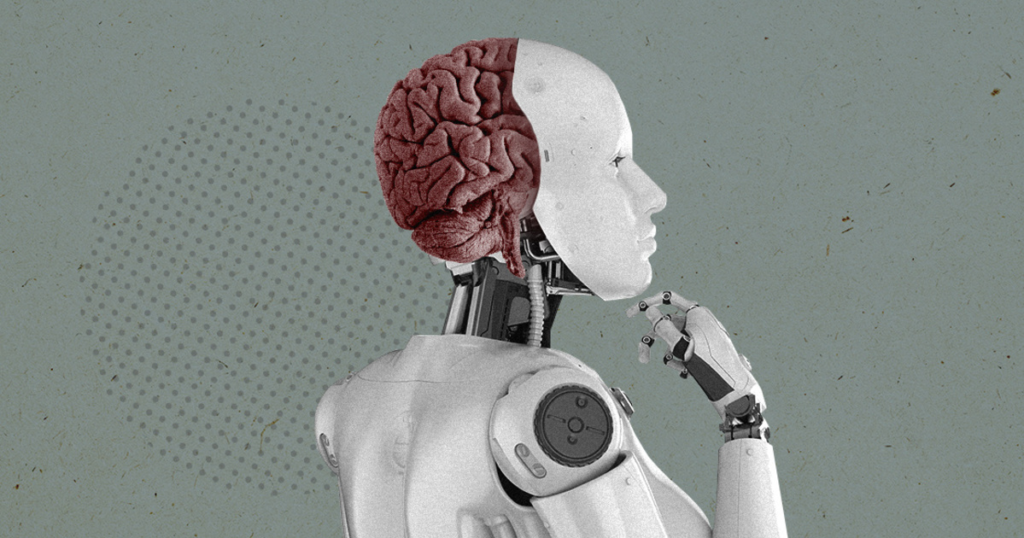Artificial intelligence (AI) is transforming industries worldwide, and Hungary is no exception. Businesses in Hungary are beginning to embrace AI technologies, recognizing both the opportunities and challenges associated with their implementation. As AI becomes a cornerstone of modern innovation, understanding how Hungarian businesses perceive and utilize AI is crucial for staying competitive in the global market.

The Role of AI in Hungarian Businesses
1. Enhancing Efficiency and Productivity
AI has the potential to automate repetitive tasks, streamline processes, and significantly boost productivity in various sectors. Hungarian companies are exploring the use of AI to optimize supply chains, improve customer service through chatbots, and enhance operational efficiency.
- Automation of Tasks: Businesses are using AI to automate routine tasks such as data entry, allowing employees to focus on more strategic initiatives.
- Supply Chain Optimization: AI-driven analytics help companies predict demand and manage inventory more effectively, reducing waste and enhancing profitability.
2. AI-Driven Innovation
Hungarian businesses are leveraging AI to drive product and service innovation. By analyzing consumer behavior and market trends, AI algorithms can identify new opportunities for growth and development. This has led to the creation of smarter products, personalized customer experiences, and the development of innovative business models.
- Smart Products: AI-powered devices and software solutions are becoming more prevalent, providing customers with personalized and adaptive products.
- Predictive Analytics: Businesses use AI to predict market trends, helping them stay ahead of the competition.
Challenges Faced by Hungarian Businesses in AI Adoption
1. Lack of Skilled Workforce
One of the biggest challenges Hungarian businesses face when adopting AI is the shortage of skilled professionals. AI expertise is in high demand, but there is a lack of adequately trained individuals in the field. As a result, companies struggle to implement AI solutions effectively.
- Skills Gap: The rapid pace of AI development has created a gap between the skills required and those available in the workforce.
- Training and Education: Companies are investing in AI education and training programs to build a skilled workforce capable of utilizing these technologies.
2. Ethical Concerns and Data Privacy
As AI systems handle vast amounts of data, concerns about privacy and ethical implications have risen. Hungarian businesses need to ensure that their AI applications are designed to respect users’ privacy and adhere to data protection regulations such as GDPR.
- Data Security: Companies must safeguard sensitive data, ensuring that AI applications do not compromise personal privacy.
- Ethical AI: The use of AI in decision-making processes must be transparent and unbiased to avoid ethical issues.
3. Integration with Existing Systems
Another challenge is the integration of AI into legacy systems. Many businesses in Hungary still rely on older technology, which may not be compatible with advanced AI applications. This creates a barrier to widespread AI adoption.
- Legacy System Challenges: Outdated infrastructure can hinder the implementation of AI solutions.
- Investment in Modernization: To fully benefit from AI, businesses need to invest in upgrading their systems and infrastructure.
Opportunities for Growth in AI Adoption
1. AI in Manufacturing and Industry 4.0
The manufacturing sector in Hungary is one of the areas where AI adoption is gaining momentum. Industry 4.0, also known as the fourth industrial revolution, involves the integration of AI, robotics, and the Internet of Things (IoT) to create smart factories. Hungarian manufacturers are exploring AI-driven automation to increase efficiency and reduce production costs.
- Smart Manufacturing: AI helps optimize production lines, improve product quality, and reduce downtime.
- Predictive Maintenance: AI can predict equipment failures before they occur, minimizing costly disruptions.
2. AI in Healthcare
AI has the potential to revolutionize healthcare in Hungary, offering new solutions for diagnosis, treatment planning, and patient care. Hungarian businesses and medical institutions are exploring the use of AI to improve the accuracy of diagnoses and enhance patient outcomes.
- AI in Diagnostics: Machine learning algorithms analyze medical data to provide more accurate diagnoses.
- Personalized Treatment Plans: AI can create customized treatment plans based on a patient’s medical history and current health conditions.
3. AI in Retail and E-Commerce
The retail sector in Hungary is also benefitting from AI advancements. AI-driven recommendation engines and customer analytics are helping businesses personalize the shopping experience, increase customer satisfaction, and boost sales.
- Personalized Shopping: AI tailors product recommendations to individual customers, increasing engagement and conversion rates.
- Inventory Management: AI helps retailers manage inventory more efficiently, reducing costs and improving product availability.
Conclusion: AI’s Impact on Hungarian Businesses
Artificial intelligence is shaping the future of Hungarian businesses, offering significant opportunities for growth, efficiency, and innovation. While there are challenges to overcome, such as the skills gap and ethical concerns, AI’s potential to transform industries cannot be ignored. By investing in AI technologies and ensuring ethical, secure, and seamless integration, Hungarian businesses can remain competitive on the global stage.
About The Author
You may also like
-
CreateStudio Pro Review (2025): Is This the Ultimate Video Animation Software?
-
Microsoft: 30% of Code Now Written by AI – A New Era in Software Development
-
MWC 2025: Samsung Unveils One UI 7 and Three New Galaxy Devices
-
Official Camera Details Revealed for the OnePlus 13
-
Travel Habits Have Changed a Lot – It’s Time to JOMO

Can you be more specific about the content of your article? After reading it, I still have some doubts. Hope you can help me.